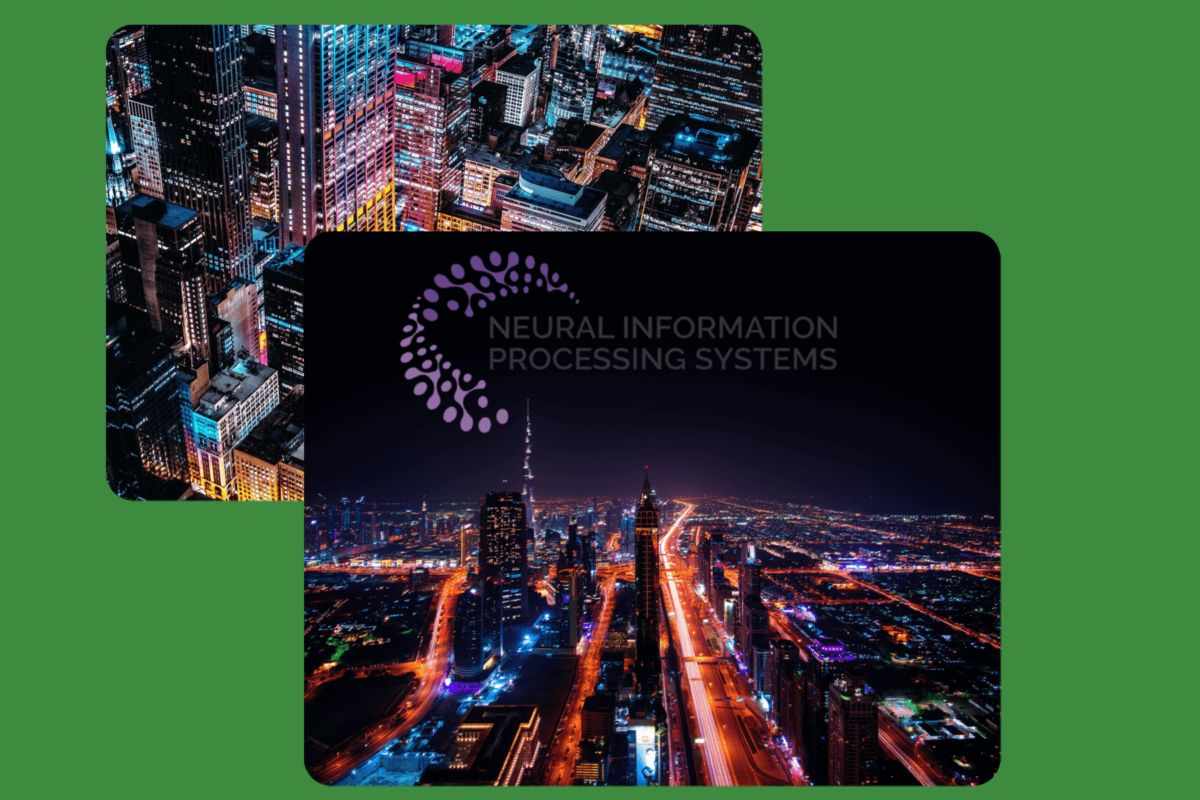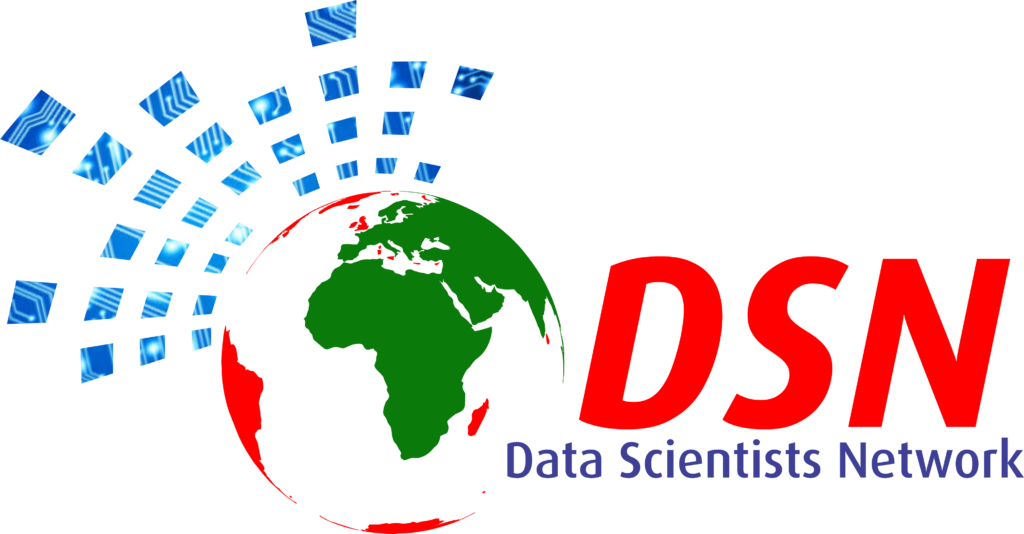NeurIPS 2020 Meet Up
Data Science Nigeria would be hosting local meetups to stream live and watch pre recorded videos from the 2020 NeurIPS Conference. Register to join us!

About NeurIPS
The Neural Information Processing Systems Foundation is a non-profit corporation whose purpose is to foster the exchange of research on neural information processing systems in their biological, technological, mathematical, and theoretical aspects.
WORKSHOP PRESENTATIONS
AFRIRAZER: A Deep Learning Model to remove Background and Skin from Traditional African Fashion Images
Link to paper: Click Here
Link to poster: Click Here
PosterID: J027
Workshop Live Stream: Click Here
Poster Session: Click Here
Abstract: Africa is known for its rich and diverse culture. Africans are flamboyant and fashion is an expression of our shared heritage as a people. Traditional African fashion is rich, colourful and vibrant, and allows for adaptable customization. In this work, we present AFRIRAZER, a deep learning model for background and skin removal in African fashion images. While the concept of image segmentation using deep learning for fashion is not new, traditional African images are not well represented in the common fashion training images. This work is part of a larger ongoing project on the curation of clean, de-identified and applicable traditional African fashion for Artificial Intelligence related work. AFRIRAZER uses deep learning to remove background and skin from images
Link to poster: Click Here
PosterID: J027
Workshop Live Stream: Click Here
Poster Session: Click Here
Abstract: Africa is known for its rich and diverse culture. Africans are flamboyant and fashion is an expression of our shared heritage as a people. Traditional African fashion is rich, colourful and vibrant, and allows for adaptable customization. In this work, we present AFRIRAZER, a deep learning model for background and skin removal in African fashion images. While the concept of image segmentation using deep learning for fashion is not new, traditional African images are not well represented in the common fashion training images. This work is part of a larger ongoing project on the curation of clean, de-identified and applicable traditional African fashion for Artificial Intelligence related work. AFRIRAZER uses deep learning to remove background and skin from images
Real-Time Crowdsourcing of Health Data in a Low-Income country: A Case Study of Human Data Supply on Malaria First-line Treatment Policy Tracking in Nigeria
Link to presentation: Click Here
Abstract: Malaria is one of the leading causes of high morbidity and mortality in Nigeria despite various policy interventions to frontally address the menace. While a national malaria policy agenda exists on the use of Artemisinin-based antimalarial as the first-line drug of choice for the treatment, there have been challenges in the implementation monitoring across various drug distribution layers, particularly the informal channels that dominate over eighty percent of the antimalarial drug distribution value chain. The lack of sustained policy monitoring through a structured and systematic surveillance system can encourage irrational drug usage, trigger antimalarial drug resistance, and worsen the disease burden in an economy whereover ninety percent of the population live below the poverty line. We explored the use of real-time data collection through ordinary local residents, who leverages low-cost smartphones with an on-device app to run quick mystery shopping at drug outlets to check recommended malaria treatment drugs in four (4) states across the country. The instant survey data is collected via guided mystery shopping, which requires the volunteer participants to answer three basic questions after a 5-10minutes in-store observation. Each submission is verified with the drug store picture and auto-generated location co-ordinates. The antimalarial policy compliance level is immediately determined and can be anonymously aggregated into a national map for onward sharing with pharmaceutical trade groups, government agencies and non-profits for immediate intervention via requisite stakeholder education. This crowd-sourcing effort provides an affordable option that can be scaled up to support healthcare surveillance and effective policy compliance tracking in developing nations, where there is a paucity of data as a result of high illiteracy and infrastructural inadequacy.
Abstract: Malaria is one of the leading causes of high morbidity and mortality in Nigeria despite various policy interventions to frontally address the menace. While a national malaria policy agenda exists on the use of Artemisinin-based antimalarial as the first-line drug of choice for the treatment, there have been challenges in the implementation monitoring across various drug distribution layers, particularly the informal channels that dominate over eighty percent of the antimalarial drug distribution value chain. The lack of sustained policy monitoring through a structured and systematic surveillance system can encourage irrational drug usage, trigger antimalarial drug resistance, and worsen the disease burden in an economy whereover ninety percent of the population live below the poverty line. We explored the use of real-time data collection through ordinary local residents, who leverages low-cost smartphones with an on-device app to run quick mystery shopping at drug outlets to check recommended malaria treatment drugs in four (4) states across the country. The instant survey data is collected via guided mystery shopping, which requires the volunteer participants to answer three basic questions after a 5-10minutes in-store observation. Each submission is verified with the drug store picture and auto-generated location co-ordinates. The antimalarial policy compliance level is immediately determined and can be anonymously aggregated into a national map for onward sharing with pharmaceutical trade groups, government agencies and non-profits for immediate intervention via requisite stakeholder education. This crowd-sourcing effort provides an affordable option that can be scaled up to support healthcare surveillance and effective policy compliance tracking in developing nations, where there is a paucity of data as a result of high illiteracy and infrastructural inadequacy.
Federated Grassroots Community Model for Catalyzing Artificial Intelligence for Common Good
Link to publication: Click Here
Abstract: Malaria is one of the leading causes of high morbidity and mortality in Nigeria despite various policy interventions to frontally address the menace. While a national malaria policy agenda exists on the use of Artemisinin-based antimalarial as the first-line drug of choice for the treatment, there have been challenges in the implementation monitoring across various drug distribution layers, particularly the informal channels that dominate over eighty percent of the antimalarial drug distribution value chain. The lack of sustained policy monitoring through a structured and systematic surveillance system can encourage irrational drug usage, trigger antimalarial drug resistance, and worsen the disease burden in an economy whereover ninety percent of the population live below the poverty line. We explored the use of real-time data collection through ordinary local residents, who leverages low-cost smartphones with an on-device app to run quick mystery shopping at drug outlets to check recommended malaria treatment drugs in four (4) states across the country. The instant survey data is collected via guided mystery shopping, which requires the volunteer participants to answer three basic questions after a 5-10minutes in-store observation. Each submission is verified with the drug store picture and auto-generated location co-ordinates. The antimalarial policy compliance level is immediately determined and can be anonymously aggregated into a national map for onward sharing with pharmaceutical trade groups, government agencies and non-profits for immediate intervention via requisite stakeholder education. This crowd-sourcing effort provides an affordable option that can be scaled up to support healthcare surveillance and effective policy compliance tracking in developing nations, where there is a paucity of data as a result of high illiteracy and infrastructural inadequacy.
Abstract: Malaria is one of the leading causes of high morbidity and mortality in Nigeria despite various policy interventions to frontally address the menace. While a national malaria policy agenda exists on the use of Artemisinin-based antimalarial as the first-line drug of choice for the treatment, there have been challenges in the implementation monitoring across various drug distribution layers, particularly the informal channels that dominate over eighty percent of the antimalarial drug distribution value chain. The lack of sustained policy monitoring through a structured and systematic surveillance system can encourage irrational drug usage, trigger antimalarial drug resistance, and worsen the disease burden in an economy whereover ninety percent of the population live below the poverty line. We explored the use of real-time data collection through ordinary local residents, who leverages low-cost smartphones with an on-device app to run quick mystery shopping at drug outlets to check recommended malaria treatment drugs in four (4) states across the country. The instant survey data is collected via guided mystery shopping, which requires the volunteer participants to answer three basic questions after a 5-10minutes in-store observation. Each submission is verified with the drug store picture and auto-generated location co-ordinates. The antimalarial policy compliance level is immediately determined and can be anonymously aggregated into a national map for onward sharing with pharmaceutical trade groups, government agencies and non-profits for immediate intervention via requisite stakeholder education. This crowd-sourcing effort provides an affordable option that can be scaled up to support healthcare surveillance and effective policy compliance tracking in developing nations, where there is a paucity of data as a result of high illiteracy and infrastructural inadequacy.
Problem and Solution Documentation Template for Machine Learning Competitions to Enhance Explainability, Reproducibility, and Collaboration Between Stakeholders
Link to publication: Click Here
Abstract: Democratizing access to Artificial Intelligence and truly utilizing it for the common good requires multi-stakeholder AI competitions focussed on real and prevalent problems with the potential for large scale impact and that promotes and ensures the explainability, reproducibility, contextualization and incremental enhancements of solutions. We propose a solution documentation and problem documentation template for AI/Machine Learning competitions that ensures the identification and systematic characterization of prevalent problems and the documentation of developed solutions in such a way that they can be easily utilized by anyone anywhere.
Abstract: Democratizing access to Artificial Intelligence and truly utilizing it for the common good requires multi-stakeholder AI competitions focussed on real and prevalent problems with the potential for large scale impact and that promotes and ensures the explainability, reproducibility, contextualization and incremental enhancements of solutions. We propose a solution documentation and problem documentation template for AI/Machine Learning competitions that ensures the identification and systematic characterization of prevalent problems and the documentation of developed solutions in such a way that they can be easily utilized by anyone anywhere.
SCHEDULE
| Session Type | Topic | Date | Time (WAT) | NeurIPS Date | NeurIPS Time (WAT) | Live Stream |
|---|---|---|---|---|---|---|
| Black in AI Workshop | A Deep Learning Model to remove Background and Skin from Traditional African Fashion Images | December 11th 2020 | 2:00pm – 4:00pm | December 7th, 2020 | 5:00pm – 1:00am | Click Here |
| Crowd Science | Real-Time Crowdsourcing of Health Data in a Low-Income country: A Case Study of Human Data Supply on Malaria First-line Treatment Policy Tracking in Nigeria | December 12th 2020 | 12:00pm- 1:00pm | December 11th, 2020 | 7:25pm – 7:45pm | |
| Challenges in Machine Learning (CiML) workshop | Problem and Solution Documentation Template for Machine Learning Competitions to Enhance Explainability, Reproducibility, and Collaboration Between Stakeholders | December 12th 2020 | 1:30pm – 2:00pm | December 11th, 2020 | 5:20pm – 6:00pm | |
| Challenges in Machine Learning (CiML) workshop | Federated Grassroots Community Model for Catalyzing Artificial Intelligence for Common Good | December 12th 2020 | 2:00pm – 2:30pm | December 11th, 2020 | 7:20pm – 7:50pm |
DATE
11TH AND 12TH DECEMBER 2020
TIME
12:00PM – 4:00PM
LOCATION
Data Science Nigeria AI Hub
174b, Murtala Muhammad Way, Yaba, Lagos.
174b, Murtala Muhammad Way, Yaba, Lagos.
Beginner's AI Book
- A first of its kind book introducing kids to Artificial Intelligence. Empowering them with the skills of the present and future, providing them with the needed leverageRead More
Copyright © 2022 Data Science Nigeria.
